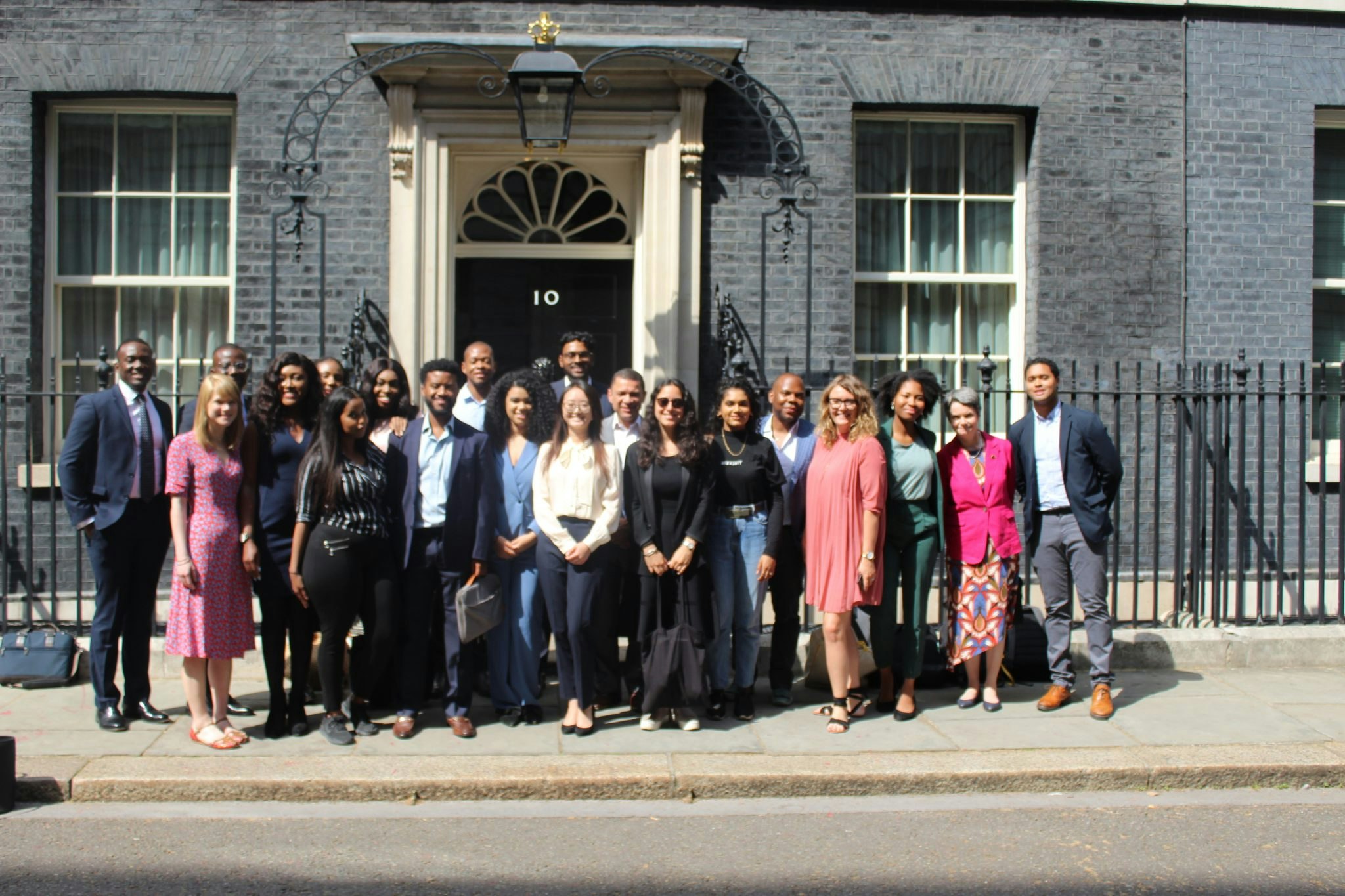The startling statistics from the government-commissioned report from Public Health England confirming that black people are at higher risk of being diagnosed with and dying from Covid-19 has blown a hole in the cosy theory that we’re all in this together.
Factors such as over-representation in public-facing jobs that expose the black community to higher risk and discrimination are believed to be among the underlying reasons for the disparity.
But as a black founder and chief executive of a black-led business, I’m also seriously worried about the underlying and embedded economic disparities that, if unaddressed, will pose a detrimental threat to black businesses and see them too become disproportionate casualties of this worldwide pandemic.
Who investors overlook
From my position as a serial entrepreneur and investor, I am keenly aware of inefficiencies in capital allocation. Investment capital does not always find the best opportunities: Pat McGrath, MBE, the British makeup artist and powerhouse behind global cosmetics brand Pat McGrath Labs; Cathy Hughes the billionaire founder and chair of publicly-listed Urban One; and Richelieu Dennis, founder of global skin and hair company Shea Moisture, which was acquired by Unilever, were all rejected by various investors.
Of course, they’re not the only people who have gone on to great success despite initially being turned down for funding. But the truth is, as black-led businesses, they’re more likely to be rejected because the reality is most investment goes to companies founded and led by white men.
Leveraging inefficiency for financial return is why I launched Impact X Capital, a venture capital vehicle that makes direct investments in startups founded by black and female leaders in Europe, who are disproportionately underfunded when it comes to securing financial backing.
As a VC, I am exposed to hundreds of emerging companies annually and firmly believe Impact X’s thesis that investing in underrepresented founders can leverage a glaring market inefficiency.
But I’m deeply concerned about how many black businesses will survive Covid-19.
Survival rates
Black companies face underlying vulnerabilities, including having significantly less access to capital and venture capital investment. A report conducted by Diversity VC and RateMyInvestor found that less than 1% of venture capital is invested in black businesses in the US and the number for the UK is no better.
The Bank of England has issued a dire warning that Britain is facing its sharpest recession on record. Figures released this week showed the UK economy shrank by 20.4% in April — the largest monthly contraction on record.
The effects of recessions are not borne evenly.
While this is alarming for all businesses across the country, it is acutely concerning for black companies. Like Covid-19, the effects of recessions are not borne evenly, with some sections of society more impacted than others.
During the recession that followed the 2008 global financial crisis, a report prepared for the Department for Business Innovation and Skills by Warwick Business School into the effect on bank lending to SMEs, found that businesses owned by black Africans were 11.9% more likely to be rejected for an overdraft than white-owned businesses. When black African-owned businesses did manage to secure overdrafts, they paid margins that were 2.12% points higher than margins paid by businesses with a white principal owner. When it came to term loans, the report revealed that businesses with a black African principal owner were 14.4% more likely to experience rejection than businesses with a white principal owner.
A 2009 report from the Equality and Human Rights Commission on the impact of the last recession said there was evidence that “black ethnic groups may be faring particularly badly”.
There’s a chance that this time round things might be different — but it’s a slim one. On a brighter note, the government-owned British Business Bank announced in January that 48% of the 15,423 startup loans advanced in London since 2012 have been to BAME entrepreneurs. Across the UK as a whole, 22% of loan recipients come from BAME backgrounds.
But BAME is a catch-all term which basically means anyone who isn’t white. I believe that if and when the numbers are unpacked, black participation, meaning specifically people of African, African-Caribbean or African American heritage, will represent a relatively small portion of that number. I would also, sadly, expect to see the size of loans to black businesses will be smaller on average; this would follow the findings from the Warwick Business School study cited earlier.
Finally, assuming an equal distribution and a five-year reported period, the maths demonstrates that the average size of the 7,366 loans received by BAME businesses in London was less than £6,800 per company. The figure appears less generous than the Coronavirus Job Retention scheme which, at a maximum of £2,500 a month for furloughed employees, pays individuals the same amount in three months.
In addition, a survey by Extend Ventures found that government schemes in response to Covid-19 were not offering much support to diverse founders. It revealed almost half of BAME-owned companies didn’t plan to access Covid-19 related state support or didn’t think that they would qualify for it.
Specific solutions for specific challenges
Just as the government launched a review into the high death rate of black Covid-19 victims, I would urge the British Business Bank to examine the unique challenges black businesses in the UK face and encourage banks to support them and make it more attractive to usually wary investors to do so.
Black British businesses are in crisis.
Take the state-backed Coronavirus Business Interruption Loan Scheme (CBILS) scheme for small businesses. The government had to tell banks that personal guarantees from business owners were not required to secure a loan. This is the type of proactive government backing may be required to successfully change the lending landscape in the UK. The government has shown a precedent to secure loans and even pay interest in a crisis situation. Black British businesses are in crisis.
I fear that further research could uncover a significant black business mortality rate and that similar socio-economic and other factors highlighted in the disproportionate black deaths from the disease will be at play here. Also, I suspect there will be an amplified impact as underrepresented entrepreneurs tend to disproportionately hire other underrepresented employees and service providers. This creates a potential perfect storm leading to future vulnerabilities among black people and communities when crises hit.
While many companies are severely struggling as a result of the lockdown, recent startup businesses are particularly at risk as they are more likely to have limited — or no — reserves.
With Britain urged to go shopping this week as retailers open for business, how many black businesses will reopen and how many will succumb to Covid-19 in the same over-indexed way that black Britons are dying during the pandemic? When we look back at this period, my hypothesis is black companies will suffer disproportionately. This holds for all companies, including startups, bar the most well-capitalised black businesses.
Impact X continues to look for and supports black business. But if action isn’t taken now, I worry about how many underrepresented businesses there will be left to support.


